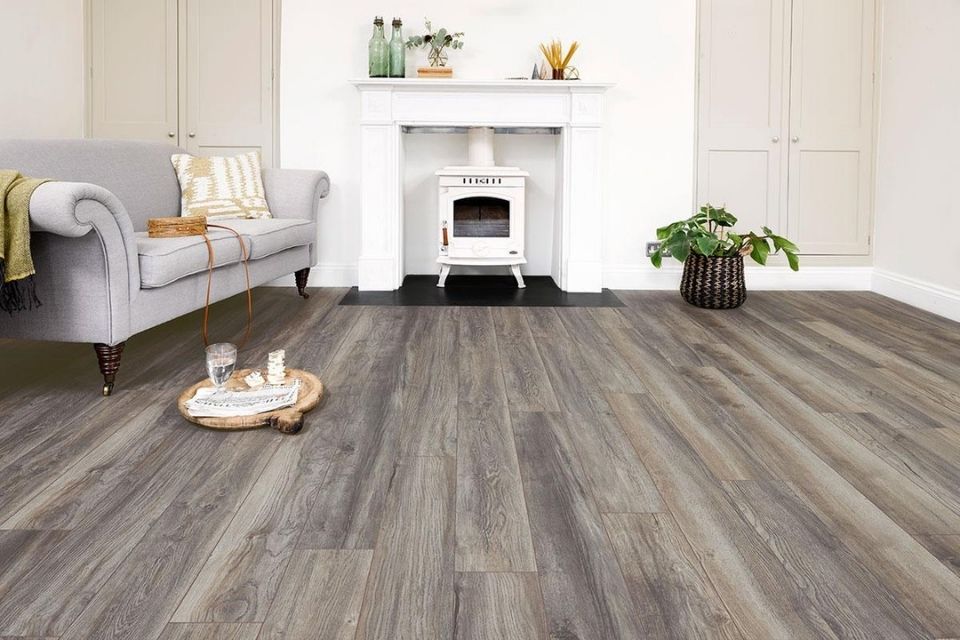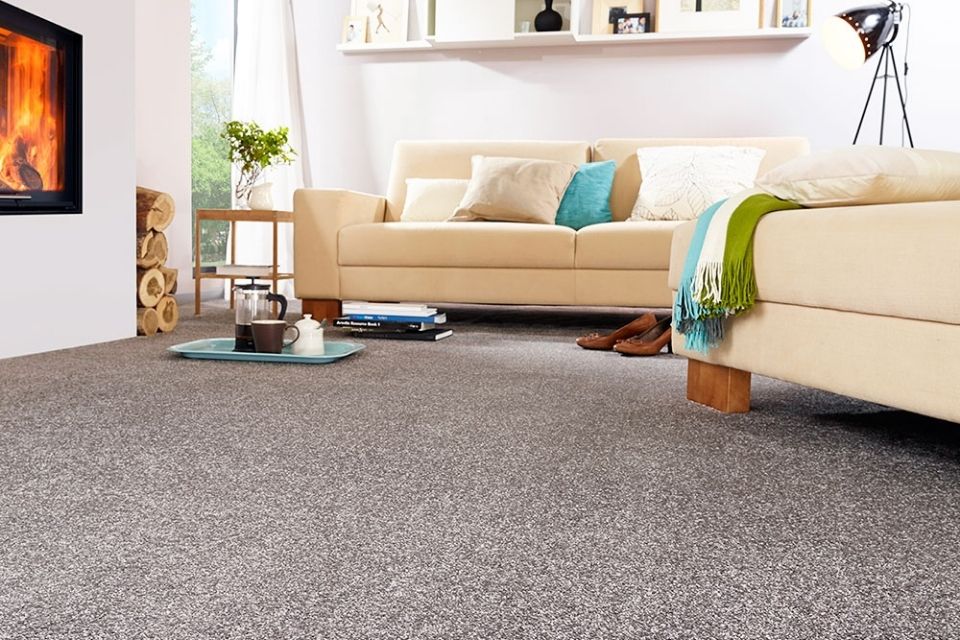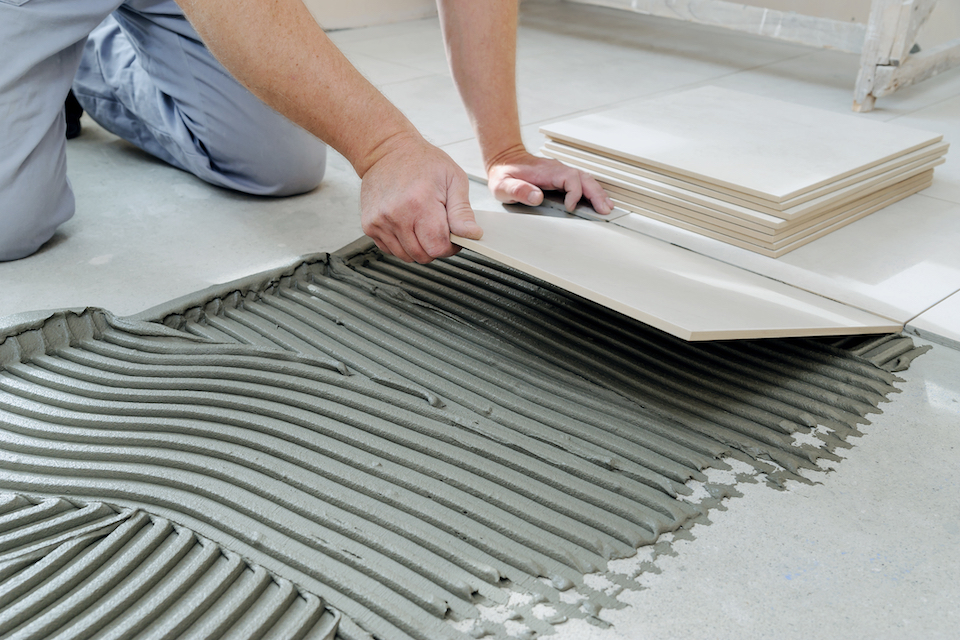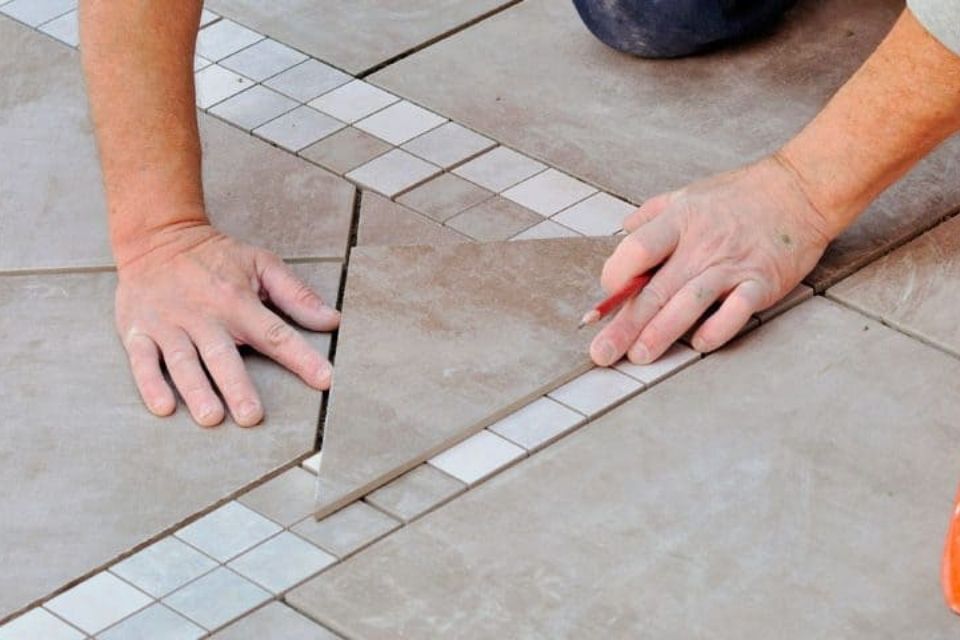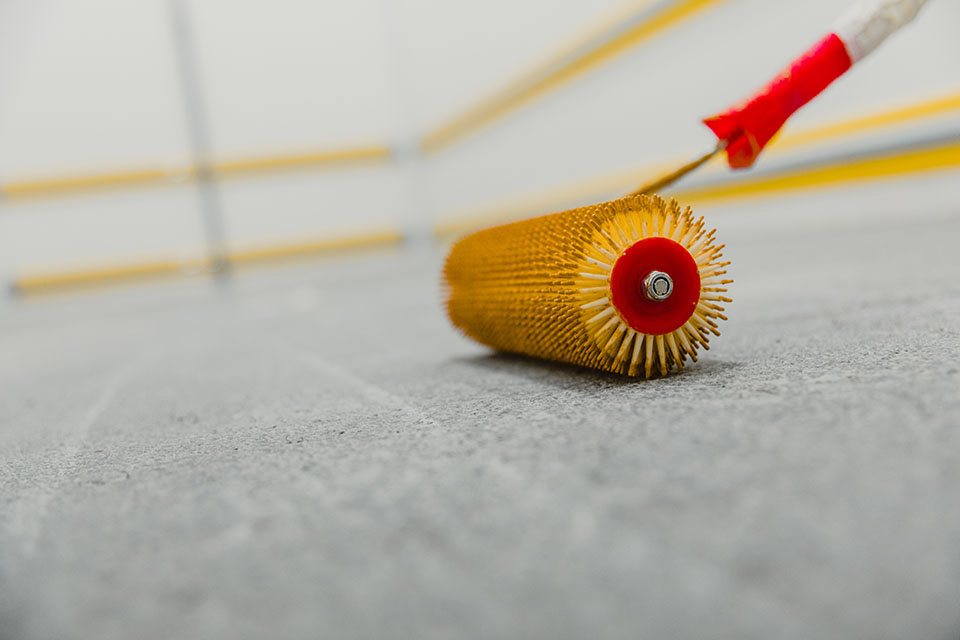How Much is Resin Flooring Installation?
The average resin floor cost per square metre for floor coating is between £7 and £15 per square metre.
Only want the best flooring you can get?
If you want the best resin flooring, you should choose a high-performance polyurethane flooring, which ranges from £50 to £100 per square metre.
Many factors affect the cost to install a resin floor, however, the main cost-affecting factor is the size of the space. The price of resin flooring per square metre (m2) varies based on the scope of the project.
This is one of the most critical variables you need to consider.
Although a larger flooring area is more expensive, it results in a lower cost per square metre. This is because resin flooring is mixed and installed on-site, so a larger area allows for higher efficiency.
If you're ready to get a quote for your resin floor, we can also help connect you with local flooring specialists.
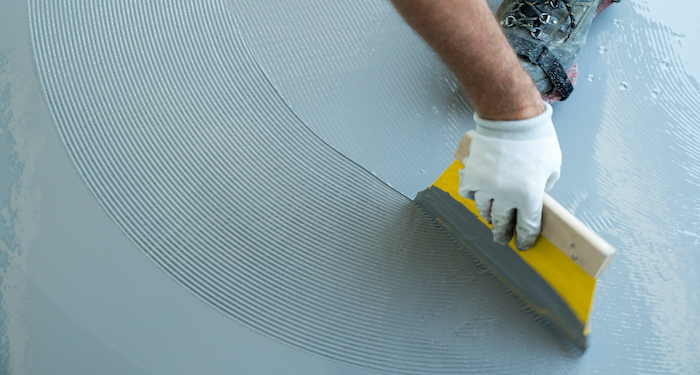
The type of poured resin floor you choose will also impact the cost, and certain varieties of resin flooring will be more expensive than others.
Resin flooring can range from simple floor coatings to more complicated floor coatings with custom colouration and other functions. Anti-static or anti-slip properties, for example, can increase the cost of resin.
Resin Flooring Prices
The table below breaks down the cost of installing a resin floor:
| Flooring Type | Average Cost (per m², incl. installation) |
|---|---|
| Resin flooring | £7 – £15 (materials only) |
| Polyurethane flooring | £50 - £100 |
| Epoxy flooring | £85 - £120 |
It's important that you consider the state of your current floor, as this will also have an impact on the price.
If the existing floor is in bad condition, it may require substantial preparation to ensure the resin floor is installed correctly. This will of course increase the duration, and the cost of the job.
Are there any other considerations that need to be made? Let's see...
Shot blasting, which removes old floor coatings from the surface, may be required for your floor. Shot blasting blasts the floor and suckers up any loose surface debris.
Diamond grinding is another method of surface preparation that involves grinding the surface into a smooth texture with a grinding machine. Removing any old flooring, such as existing resin or tile, will necessitate more preparation work, which will increase the cost and affect your budget.
The location of your property will also affect the overall cost of the installation, as trades rates vary across the UK.
- How Much is Resin Flooring Installation?
- What are the Supply Costs of a Resin Floor Installation?
- Labour Cost to Lay a Resin Floor
- How Long Does It Take to Install a Resin Floor?
- Types of Resin Floors
- Benefits of a Resin Floor
- DIY vs Professional Resin Floor Installation
- How Much Does It Cost to Remove Resin Flooring?
- FAQs
- Sources
What are the Supply Costs of a Resin Floor Installation?
The table below will show the supply costs of installing a resin floor without any labour or additional costs included.
| Supply | Cost |
|---|---|
| Resin solution | £240 - £260 (20KG) |
| Resin polyester set | £11 - £17 for 3 |
| Muriatic acid | £6 - £16 |
| Cleaning solution | £8 - £10 |
| Cleaning solution (pack of four) | £40 - £50 |
| Long-handled paint roller | £8 - £15 |
| Stiff bristle brush | £6 - £8 |
| Wet/dry vacuum | £47 - £120 |
| Painter’s tape | £3 - £5 |
| Respirator | £20 - £100 |
| Drill with mixer | £50 - £100 |
| Scraper | £2 - £6 |
If you plan to install a resin floor yourself, do you need to consider the supply costs. This includes the resin itself which costs around £240 - £260 for a 20KG tin. A resin polyester set costs £11 - £17 for a three-piece set on average.
Muriatic acid will cost you £6 - £16 on average and a cleaning solution will cost you £8 - £10 on average of £40 - £50 for a pack of four.
To apply resin floor, you must have a long-handled paint roller to evenly spread the resin across the floor which on average costs around £8 - £15, a stiff bristle brush will cost you around £6 - £8.
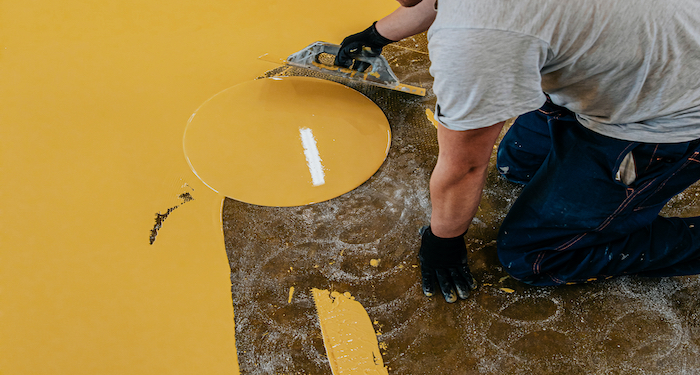
You will need a wet/dry vacuum which ranges from £47 - £120.
Painter’s tape will cost you around £3 - £5. You will also need a drill with a mixer which typically cost about £50 - £100, and a scraper which costs £2 - £6.
Labour Cost to Lay a Resin Floor
Resin flooring is a specialised material that should be installed by a trained professional to ensure a high-quality finish and long-term durability.
Labour costs for resin flooring installation typically range from £150 to £250 per day, depending on the tradesperson’s experience and location.
If there is an existing floor that needs to be removed first, this will add time and complexity to the job. In which case it could take an additional couple of days, increasing the overall cost by £600 to £1,000 in total, especially if extra preparation or surface treatment is required.
In the event of a large job that requires more than one person, this too will increase the labour costs in order to cover the additional workers.
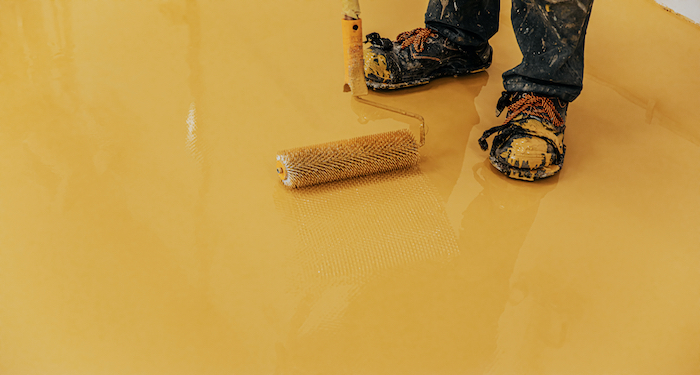
When installing a resin floor, you may want to consider additional jobs such as:
Wallpapering
Wallpapering is another substantial decorating cost, with prices (including materials and stripping the previous wallpaper) ranging from £150 to £200 for a small 10m2 room, up to £600 for a higher quality wallpaper.
Decorators in the United Kingdom charge between £23 and £26 per hour on average. Prices, however, may vary, depending on where you live, with costs higher in areas such as Birmingham and London.
Below are the UK average labour costs for wallpapering, calculated based on the size of room:
| Room Size | Labour Cost |
|---|---|
| 10m2 | £80 – £120 |
| 20m2 | £130 – £170 |
| 30m2 | £200 – £250 |
| 50m2 | £270 – £330 |
Painting and Decorating
If you would prefer to paint your walls, then you need to consider the cost of interior painting. Painting a room, for example, might cost anywhere from £180 for a tiny bedroom to £600 for a large living room.
You may also want to consider the cost of painting skirting boards when laying a resin floor, which can range from £180 to £350, depending on the size of room.
It could also be worth repainting all the window frames and sills at the same time, this typically costs between £400 and £1,500.
Professional painters and decorators tend to charge approximately £100 to £300 per day or £15 to £40 per hour for smaller painting jobs.
Skip Hire
Most likely, you will need to have your old flooring removed before your resin floor can be installed. The best solution is to hire a skip.
The price of hiring a skip is determined by the size and type of skip. Roll-on roll-off skips, for example, are less expensive per yard than standard skips.
Below are some average prices per skip size, although this can vary depending where you are in the UK. London prices can be more expensive due to the cost of living and to cover transport costs etc.
| Skip Size | Average Cost |
|---|---|
| 2-yard | £70 – £100 |
| 4-yard | £100 – £160 |
| 6-yard | £120 – £190 |
| 8-yard | £150 – £370 |
| 10-yard | £180 – £410 |
| 12-yard | £220 – £450 |
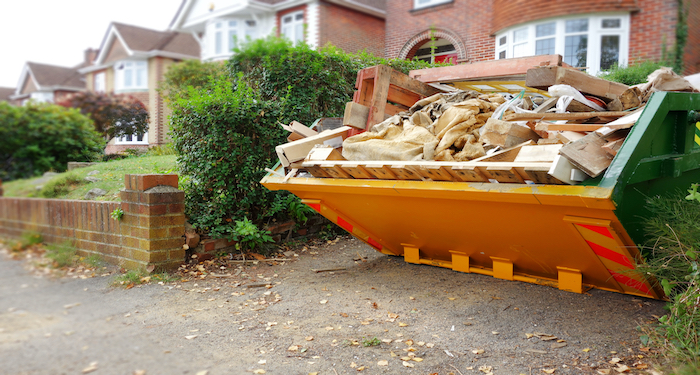
The number of tradesmen engaged to deliver and collect the waste, the ease of access to your property, and your location are all factors that affect the price. Because skip hire fees vary across the country, where you live will have an impact on the cost of hiring a skip.
How Long Does It Take to Install a Resin Floor?
The length of the floor installation will be determined by the size of the space, as well as the floor material.
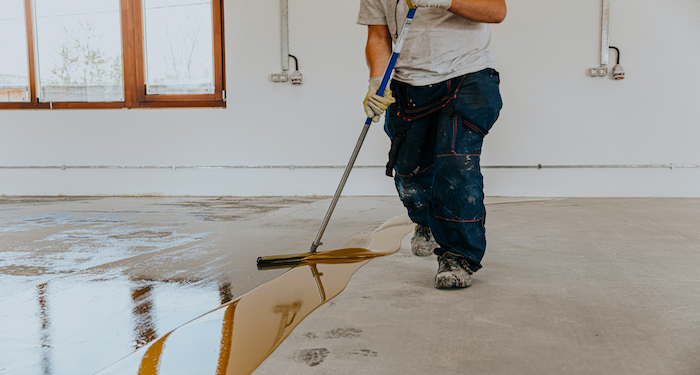
For an average floor, it can take two to three days depending on the floor material. For example, certain resin floors will take three to four days to install.
Diamond grind preparation, a primer, resin mortar coat, resin grout coat, and a resin topcoat are typically required for some of the most difficult jobs.
Types of Resin Floors
Resin flooring comes in a variety of styles. While all resin floors are more hygienic and durable than other flooring surfaces, the distinctions between each kind may offer major benefits or drawbacks, depending on their application.
Here are the different types of resin flooring:
PMMA Resin Flooring Cost
PMMA stands for polymethyl methacrylate, a synthetic resin sometimes known as "acrylic" or "acrylic glass". It is commonly used to make Plexiglas, Lucite, and Perspex.
PMMA resin flooring is a thermoplastic resin that can be tailored to meet specific industrial requirements such as slip, chemical, or electrical resistance.
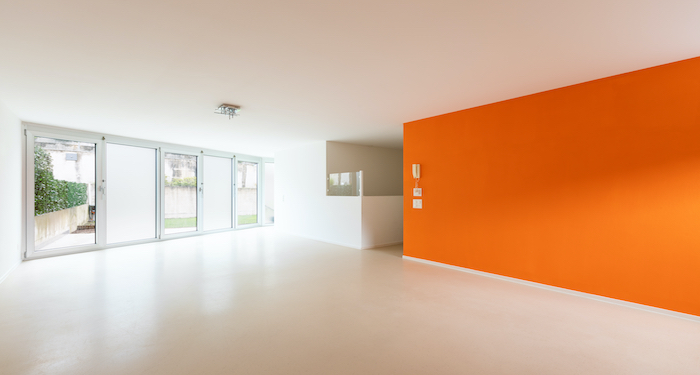
PMMA resin flooring is distinguished by its exceptionally quick application and hardening (cure) time, even at temperatures below 0°C. Because of the quick cure period, a PMMA resin floor can be entirely erected and cured in a single weekend, resulting in little downtime for factories and industrial facilities.
Due to its unique interlayer chemical interaction, PMMA flooring is extremely easy to repair and update, unlike other resin floorings that require complete replacement.
PMMA resin floors are often more expensive than other resin floorings. Nevertheless, they last longer and require less maintenance than any other system.
Pros
- Easy to repair
- Quick application
- Requires less maintenance
Cons
- Reacts badly to solvents and chemicals
Polyurethane Resin Flooring Cost
PU resin flooring, like PMMA flooring, is highly resistant to abrasion, chemicals and excessive impact. It can also withstand high temperatures and direct heat.
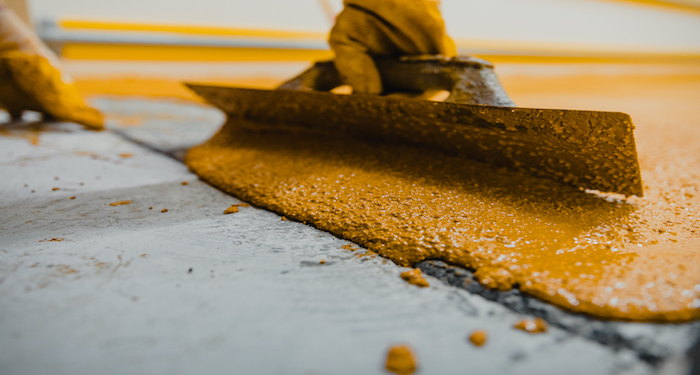
PU resin floors, which are classified as thermoset resins, take substantially longer to cure than PMMA resin floors, resulting in additional operational downtime during installation and any repairs.
Pros
- Can be mixed easily and processed
- Hardens quickly
- Good filling capacity
Cons
- Takes longer to cure
Epoxy Resin Flooring Cost
Epoxy resin is a thermoset material that delivers the performance and durability of resin flooring and is the ideal resin flooring choice for electrically conductive flooring. It is probably the most well-known and type of industrial resin flooring.
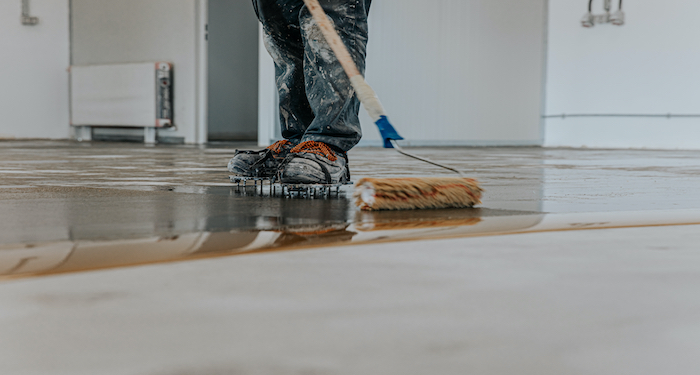
There are different types of epoxy resin available, each with its own set of benefits depending on the use. However, all epoxy resin flooring is extremely strong and adheres completely to concrete, protecting the underlying concrete base from impact, water intrusion, oil, and a variety of chemicals.
If an epoxy resin floor is damaged, it must be completely replaced, and because epoxy resin floors take the longest to cure all resin flooring options, an unforeseen replacement could be quite expensive.
Pros
- Durable
- Good for electrically conductive flooring
Cons
- If damaged, a full replacement is required
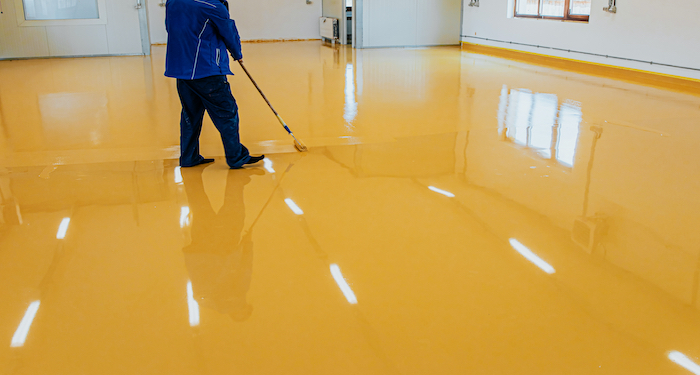
Benefits of a Resin Floor
Resin flooring provides a lot of benefits depending on where you choose to put it, including:
- Toughness - Resin flooring is is stronger than concrete and has incredible breakage resistance. The resin is covered with a continuous layer of chemical coating. This consistency is critical for the floor's stability.
- Flexibility - Under tension and stress, resin flooring is flexible and tensile. Because of the chemical bond, it can support a great deal of weight while withstanding impact and shock. Weight-bearing capacity is also aided by the amount of elasticity.
- Resistant to Chemicals - Unlike most floorings, resin is resistant to acids, alkalis, solvents and other harmful substances.
- Aesthetics - Resin flooring is available in a variety of colours and tints. You can choose from a variety of materials and styles to suit your home or office.
- Safety - Resin floors also have an anti-slip layer. This is placed beneath the primary layer and provides support and friction while walking, pulling, or moving about on the floor.
- Hygienic - As one of the most hygienic floor materials available. If something spills on it, you can easily wipe it away without worrying about absorbing the mess. The floor is also non-sticky and non-absorbing thanks to the lamination.
- Low-Cost - Resin is a low-cost substance. It has a very simple manufacturing procedure and is reasonably quick to install because it is a derivative of plastic.
DIY vs Professional Resin Floor Installation
The installation costs of a resin floor may seem cheaper doing it as a DIY project, but it's not always the best route — especially for beginners. Below are the pros and cons of each, although we'd highly recommend having it done professionally.
DIY Installation
Pros:
- Lower Upfront Cost - Save on labour fees by only paying for materials
- More convenient - No disruption from others on your property
- Job satisfaction - Done correctly, it can be a rewarding project
Cons:
- Not Straightforward - Preparing, mixing and laying resin is a complex process
- Risk of Mistakes - The slightest error of judgement can prove costly to repair
- No Guarantees - By going DIY the flooring isn't under warranty or guarantee
Professional Installation
Pros:
- High-Quality Work - Experienced tradesmen will deliver a smooth, clear finish
- Fast Turnaround - Professionals will carry out the job efficiently and finish a lot quicker
- Under Guarantee - Any work should come with a warranty or guarantee
Cons:
- High Labour Cost - Hiring a professional substantially increases the price
- Inconvenience - You have to schedule around the availability of the workmen
- Lack of Flexibility - Unable to carry out other jobs at the same time
Ultimately, DIY may be suitable for small, low-traffic spaces such as utility rooms, but for larger areas (bathrooms, kitchens, garages), a professional installation is strongly recommended. Mistakes in mixing resin or its application can soon become apparent and lead to costly repairs.
How Much Does It Cost to Remove Resin Flooring?
The most common reason why you would need to remove a resin floor is to make changes to a room, if a new tenant doesn't like the floor, or if the resin is beginning to look worn out.
The typical cost of hiring a professional to remove a resin floor is £30 per hour for labour, plus an additional £30 for the resin disposal.
Although removing resin flooring can be done as part of a DIY resin project, it is recommended that you employ a professional to do it. This will ensure that the resin is effectively removed and safely disposed of.
Unlike laminate flooring, each slab does not come off in one piece. Drilling can be utilised to remove resin flooring, thus the cost of your professional's services will include the cost of renting or using their drill.
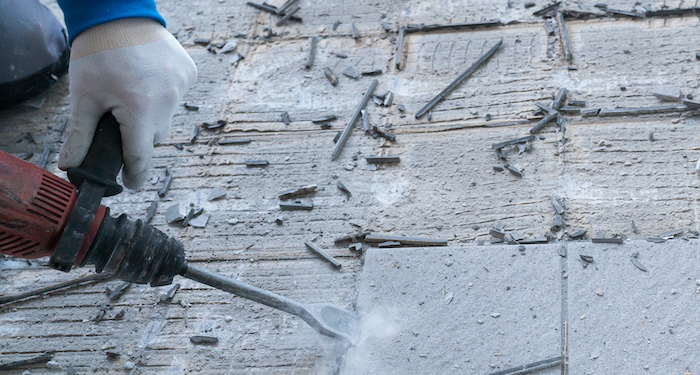
FAQs
Q: How much does an epoxy resin floor cost?
A: The average cost of an epoxy resin floor varies depending on the type of flooring. Although it is possible to buy a white resin for as little as £20 per square metre, on average you should really expect to pay around £85 per square metre (or more for a higher quality product).
Q: Can I install epoxy flooring in a garage?
A: Garage floors endure a lot of abuse. From the weight of large vehicles and equipment to the risk of chemical spills, scratches and scrapes from tools, bikes, and other objects.
As a result, a strong substance like epoxy resin flooring is an ideal garage floor option.
Q: Are resin floors high maintenance?
A: Resin flooring requires relatively little upkeep: simply sweep away any dirt and clean with an approved solution. Most resin floors are only simply a damp cloth to clean, however, others can also be steam cleaned.
To protect the surface from tiny scratches, you may be required to apply a clear glaze, wax, or sealer regularly.
Q: Is epoxy resin better than tiles?
A: Epoxy flooring is a durable and attractive option for your family home or commercial garage. Epoxy is a long-lasting material that won't stain or fracture. When it comes to new flooring, epoxy takes the lead over tile.
Q: Is resin flooring a good option for a home?
A: For your hard floors, resin is a highly safe coating. It's more abrasive, slip-resistant, and shock-resistant than concrete and other forms of industrial flooring. Some homeowners choose epoxy flooring for their mudrooms, kitchens, bathrooms, and even their garages.



